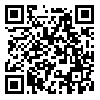
Scientific-Research Quarterly Journal of
Political and International Studies

Volume 1, Issue 1 (6-2024)
SRQPIS 2024, 1(1): 71-93 |
Back to browse issues page
Download citation:
BibTeX | RIS | EndNote | Medlars | ProCite | Reference Manager | RefWorks
Send citation to:



BibTeX | RIS | EndNote | Medlars | ProCite | Reference Manager | RefWorks
Send citation to:
Neiazi M, Habibi S A. Designing a model of factors affecting cultural development in Afghanistan via hybrid approach. SRQPIS 2024; 1 (1) :71-93
URL: http://srqpis.knu.edu.af/article-1-24-en.html
URL: http://srqpis.knu.edu.af/article-1-24-en.html
Professor of the Social Sciences Department at the Faculty of Humanities, and PhD student in Sociology of Social Issues in Iran, at Kashan University
Abstract: (2282 Views)
One of the most important and complicated issues in the fields of humanities and social sciences is cultural development. The main goal of cultural development is to benefit for the people, flourish their ability and to expand the scope of their possibilities and opportunities. In fact, cultural development is for the sake of benefiting people and improving their living conditions, and finally the overall improvement of society. In this research, the cultural development in the Afghan society investigated by using the inductive and qualitative meta-composite approach. This method includes seven steps that evaluate and systematically analyze the results and findings of previous studies. The statistical society of this research includes all scientific-research articles published in Afghanistan in the period of 1390 to 1402 with the subject of cultural development in the Afghan society. In total, we found 45 scientific-research articles; we selected 27 articles for final consideration. The findings of the research show that 12 social factors, 10 political factors, 11 cultural factors, 4 economic factors, 2 physical factors and 3 religious factors influence cultural development in Afghan society. Social factors include social cohesion, social justice, informed communication, dialogue, lack of security, division, discrimination, attitudes, values, beliefs, feelings and beliefs of citizens. Political factors include political stability, type of government, political parties, rejection of authoritarianism, democracy, civil liberties, management and planning, corruption, ethnic government and law. Cultural factors include cultural self-awareness, cultural refinement, science-oriented, cultural celebrities, advertising, cultural order, cultural freedom and creativity, art, tourism, symbolic understanding and literacy. Economic factors also include investment, budget distribution, poverty and job creation. Physical factors include rural and tribal contexts and geographical dimensions, and finally, religious factors include a one-sided reading of religion, religious divide, and religious capacities.
Keywords: Cultural development, social factors, political factors, cultural factors, economic and religious factors, physical factors
| Rights and permissions | |
 |
This work is licensed under a Creative Commons Attribution-NonCommercial 4.0 International License. |



